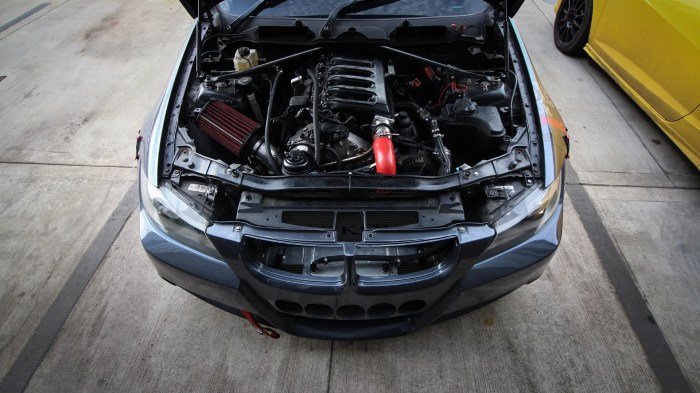Most reliable car engines define the essence of dependable driving, representing the pinnacle of automotive engineering. In a world where vehicle performance and longevity are paramount, understanding what makes these engines tick is crucial for both potential buyers and seasoned enthusiasts. This exploration dives into the characteristics that underline engine reliability, backed by compelling statistics and real-world examples that highlight the best brands in the market.
Obtain a comprehensive document about the application of Toyota Supra A80 that is effective.
From the heart of renowned manufacturers to innovative technologies that enhance durability, we will unravel the secrets behind the engines that stand the test of time. By delving into maintenance practices, consumer experiences, and future trends, this comprehensive guide is poised to illuminate the path towards choosing an engine that promises remarkable reliability.
You also will receive the benefits of visiting McLaren F1 today.
Overview of Reliable Car Engines
The reliability of a car engine is a critical factor for consumers, influencing both purchase decisions and overall satisfaction with a vehicle. Reliable engines are characterized by their durability, low maintenance needs, and consistent performance over time. Statistical data indicates that engines from certain manufacturers can last significantly longer, often exceeding 200,000 miles with proper care. Various engine types, including gasoline, diesel, and hybrid, also show differing average lifespans, with diesel engines typically lasting longer than their gasoline counterparts due to their robust construction and lower RPM operations.
Top Brands Known for Reliable Engines
Several car manufacturers have established strong reputations for producing reliable engines known for their longevity and low failure rates. Notable brands include:
- Toyota: Renowned for the 2.5L 4-cylinder engine found in the Camry, which consistently receives high reliability ratings.
- Honda: The 2.4L inline-4 engine in the Accord is another example of dependable engineering.
- Subaru: The 2.5L flat-four engine in the Outback is recognized for its durability and performance.
- Ford: The 3.5L EcoBoost V6 engine has gained a reputation for both power and reliability.
Reliability ratings for these brands have been consistently high over the years, with Toyota and Honda often topping various consumer reports and surveys.
Engine Technologies Contributing to Reliability
Modern engine technologies play a crucial role in enhancing the reliability of car engines. Innovations such as turbocharging and direct injection not only improve performance but also contribute to greater fuel efficiency and reduced emissions. The use of high-strength materials and advanced design techniques significantly increases engine durability.
| Technology | Benefits |
|---|---|
| Turbocharging | Increases power output while maintaining fuel efficiency. |
| Direct Injection | Enhances fuel atomization leading to better combustion and lower emissions. |
| Variable Valve Timing | Improves engine performance across various RPM ranges. |
Maintenance Practices for Engine Longevity

Regular maintenance is essential to ensure engine reliability and longevity. Key practices include:
- Regular oil changes to keep the engine lubricated and free from contaminants.
- Routine inspections of belts and hoses to prevent failures.
- Monitoring coolant levels to avoid overheating issues.
- Keeping air filters clean to ensure optimal airflow to the engine.
A checklist for routine maintenance will help car owners keep track of these essential tasks. Early detection of potential issues, such as unusual noises or warning lights, can prevent more severe problems down the line.
Consumer Experiences and Case Studies

Many consumers have shared positive experiences regarding the reliability of their car engines. Case studies reveal instances of owners driving their vehicles well beyond 200,000 miles with minimal engine issues. Testimonials often highlight how engine reliability has positively influenced resale value, with reliable brands retaining their worth much better than others over time.
Future Trends in Engine Reliability
Innovations in engine design are set to enhance reliability further. The shift towards hybrid and electric engines is changing perceptions of reliability, with many new technologies promising longevity and low maintenance.
| Engine Type | Reliability Factors |
|---|---|
| Traditional Gasoline Engines | Proven technology with established maintenance protocols. |
| Hybrid Engines | Lower wear due to reduced reliance on internal combustion. |
| Electric Engines | Fewer moving parts leading to less potential for failure. |
Geographic Variations in Engine Reliability, Most reliable car engines
Climate and geography significantly impact engine performance and reliability. For instance, engines in colder climates may experience additional wear due to temperature fluctuations, while engines in hotter regions often face overheating risks.
Statistics indicate that engines in temperate climates exhibit higher reliability rates compared to those in extreme conditions. Comparative studies have shown that performance can vary widely, emphasizing the importance of considering environmental factors when evaluating engine reliability.
Final Wrap-Up: Most Reliable Car Engines

In conclusion, the journey through the realm of the most reliable car engines reveals not just the mechanics but the very essence of automotive trustworthiness. As we have seen, the interplay of advanced technology, diligent maintenance, and consumer feedback shapes the reliability landscape. As the automotive industry continues to evolve, keeping an eye on emerging trends will be key to ensuring that your vehicle remains a reliable companion for years to come, enhancing both your driving experience and the value of your investment.
